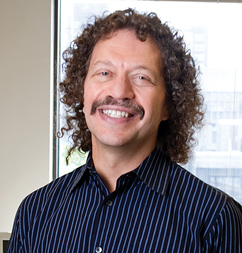In July 2023, we changed our name from AACC (short for the American Association for Clinical Chemistry) to the Association for Diagnostics & Laboratory Medicine (ADLM). The following page was written prior to this rebranding and contains mentions of the association’s old name. It may contain other out-of-date information as well.
 Award for Outstanding Contributions in Education
Award for Outstanding Contributions in Education
Dr. Sacks is senior investigator, chief of the clinical chemistry service, and deputy chief of the department of laboratory medicine at the National Institutes of Health in Bethesda, Md. In his previous positions as associate professor of pathology at Harvard Medical School and medical director of clinical chemistry at Brigham and Women's Hospital in Boston, he established a residency training program in clinical pathology. During the 20 years he directed the program, more than 50 residents were recruited who have become highly successful physician-scientists and leaders in healthcare. Dr. Sacks established an elective in laboratory medicine, which he directed for 16 years at Harvard Medical School. His scientific work is in the area of intracellular signal transduction, with a focus on calcium and calmodulin signaling. He is a fellow of the Royal College of Pathologists, American College of Physicians, and National Academy of Clinical Biochemistry. His primary clinical interest is in diabetes mellitus, with an emphasis on the interface between the clinical laboratory and patient care. He chairs the National Glycohemoglobin Standardization Program steering committee and serves on several other national and international committees, including the International Federation for Clinical Chemistry Integrated Project for HbA1c. Dr. Sacks has published more than 150 peer-reviewed articles and chapters in numerous books, including the Tietz Textbook of Clinical Chemistry. An associate editor of Clinical Chemistry, he has served on the editorial boards of The Journal of Biological Chemistry, The American Journal of Pathology, and The American Journal of Clinical Pathology. The many awards he has received include the Gerald T. Evans Award from the Academy of Clinical Laboratory Physicians and Scientists and the Distinguished Scientist Award from the National Academy of Clinical Biochemistry.
2009 The Distinguished Scientist Award
David Sacks, MD, FACB was honored with the AACC 2009 Distinguished Scientist Award.
2005 Outstanding Contributions in a Selected Area of Research
David B. Sacks, MD, MB, ChB, FRCPath, FACB, is associate professor of pathology at Harvard Medical School and medical director of clinical chemistry at Brigham and Women's Hospital in Boston.
His scientific work is in the area of intracellular signal transduction, with a focus on calcium and calmodulin signaling. Initially, Dr. Sacks investigated the role of calmodulin in insulin action. Working with Jay McDonald, Jack Ladenson, and Sharon Porter at Washington University, he developed the first monoclonal antibody to calmodulin. The remarkable conservation of amino acid sequence of calmodulin among organisms had prevented prior antibody development. Subsequently, his research focused on nonclassic calmodulin targets and the functional sequelae of the interactions of calmodulin with these divergent proteins.
He is currently pursuing the possible role of calmodulin and its interactions with selected binding proteins in neoplastic transformation and metastasis. His primary clinical focus is on diabetes mellitus, with an emphasis on the interface between the clinical laboratory and patient care.
He chairs the National Glycohemoglobin Standardization Program steering committee and serves on several other national and international diabetes committees.
Dr. Sacks has lectured extensively and has published numerous papers in peer-reviewed journals. He has served on the editorial board of Clinical Chemistry since 1995 and is currently an associate editor. He also serves on the editorial boards of the Journal of Biological Chemistry, American Journal of Pathology, Clinical Proteomics, Clinical Biochemist Reviews, American Journal of Clinical Pathology, and Biochemical Journal.